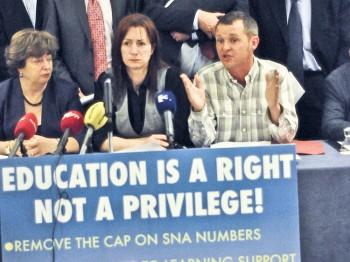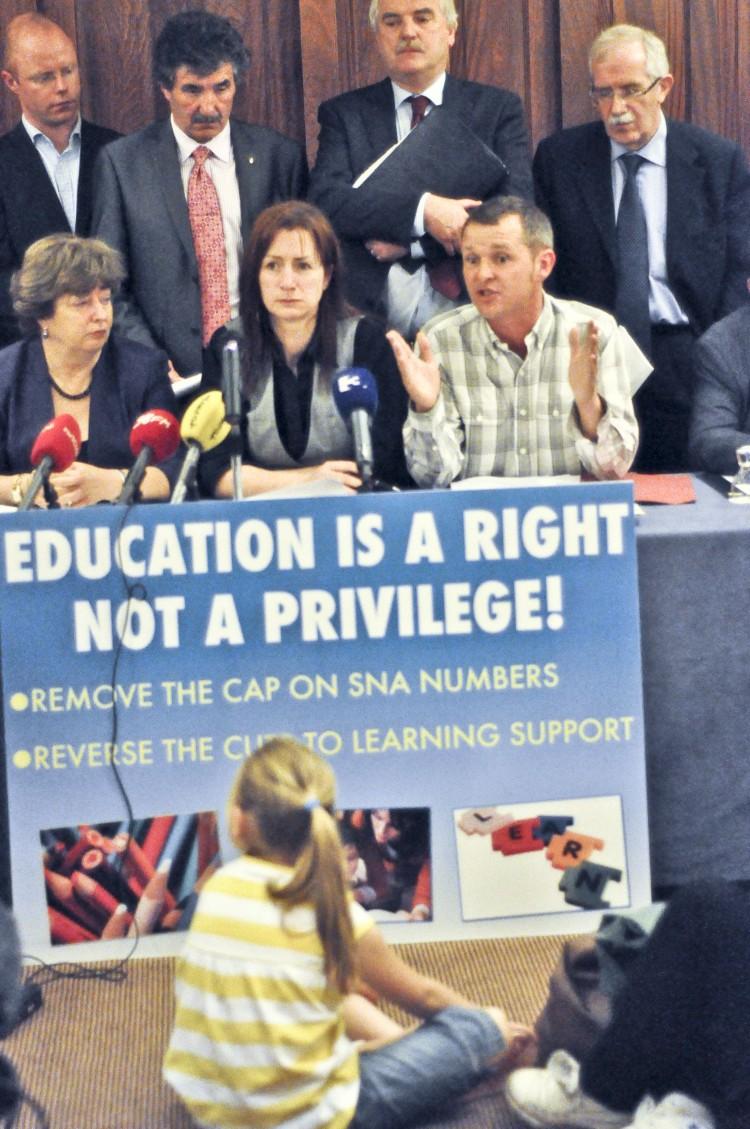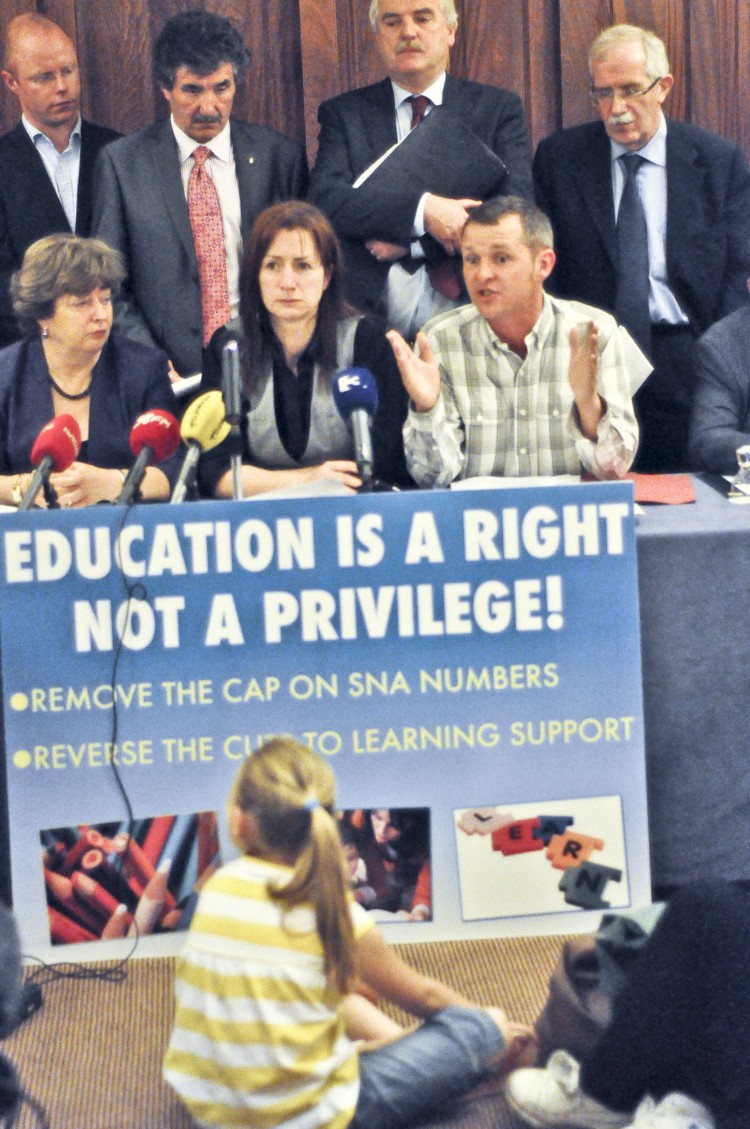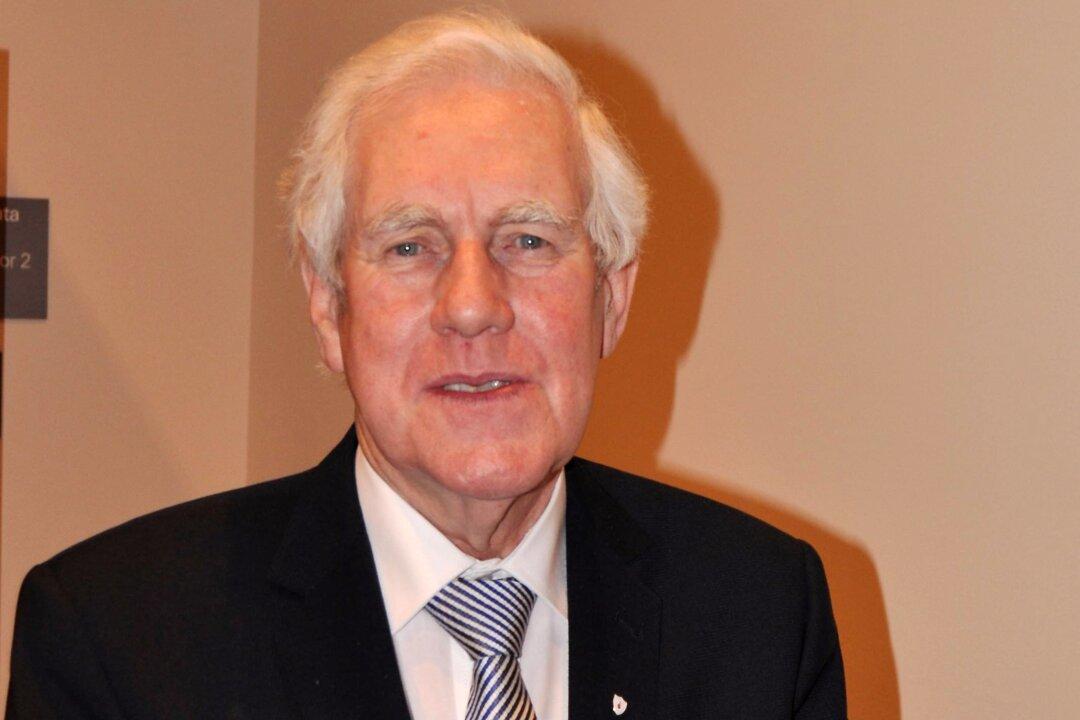Lack of Special Needs Teachers will Lead to Classroom Disruption
A review carried out by the Department of Education titled ‘A Value for Money Review of Expenditure on the Special Needs Assistant (SNA) Scheme’, found that there had been an ‘over-allocation’ of assistants.

Press conference Bushwell Hotel, Dublin Martin Murphy/The Epoch Times
|Updated:





